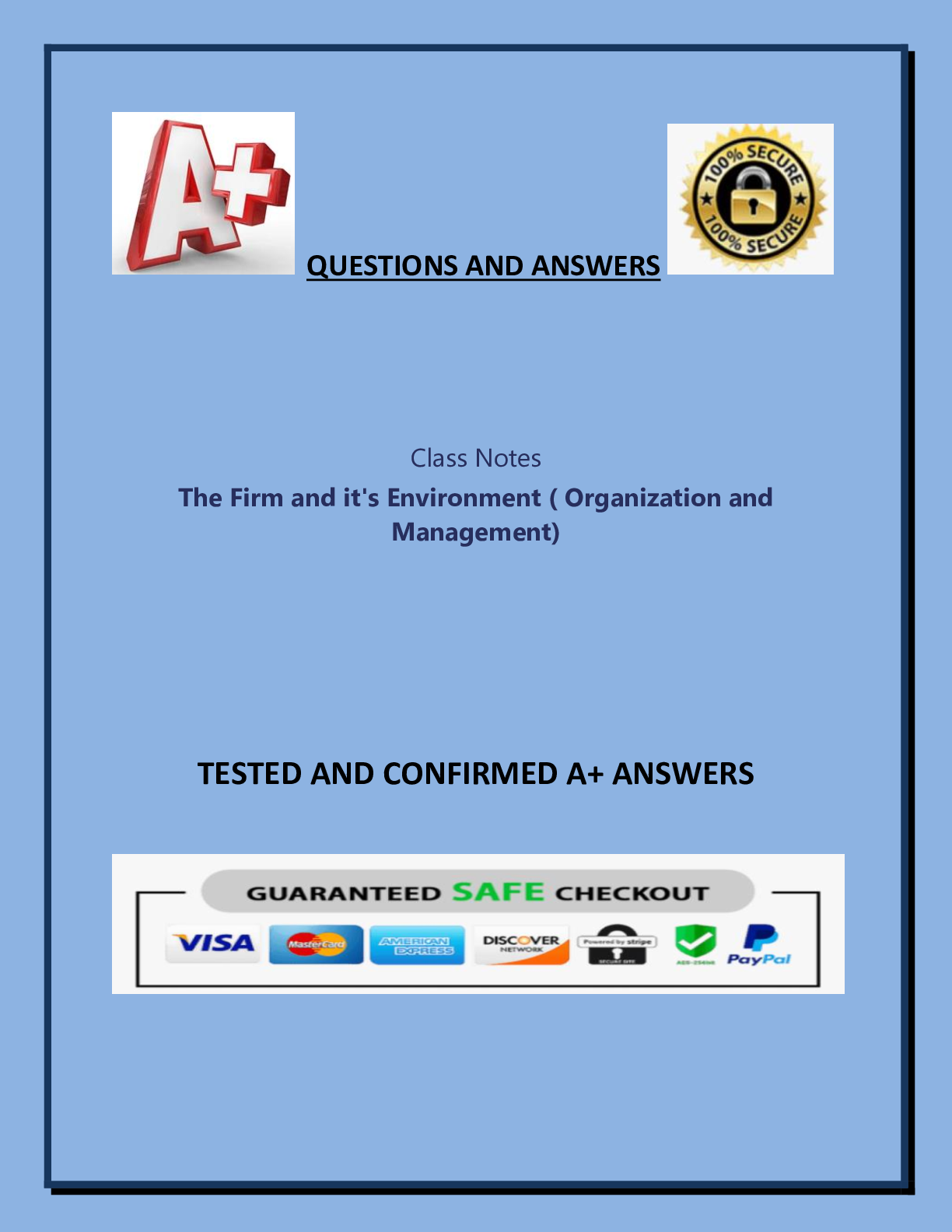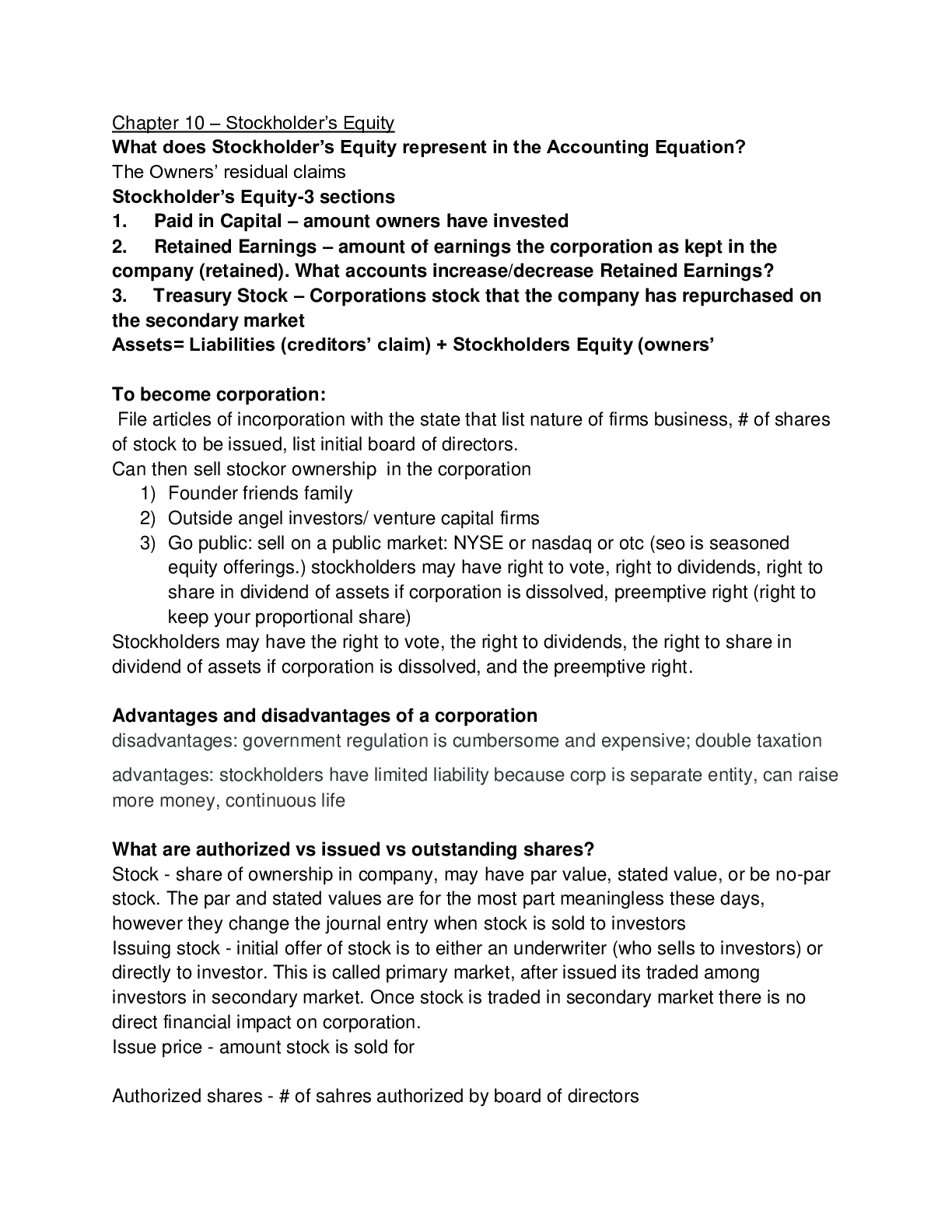NJ Real Estate > A-Level Question Paper > The Firm and it-s Environment ( Organization and Management) (All)
The Firm and it-s Environment ( Organization and Management)
Document Content and Description Below
In Chapter 1, it was emphasized that a key task of management is to adapt the organization or firm to its changing environment. At any point in time, the products and services of a firm, the methods ... it uses to produce and sell them, the size and type of its workforce, its organization structure, in fact - the total configuration of its operations - can be viewed as representing an adaptation to the requirements of its environment as of that point in time. If its adaptation is valid, the firm will prosper and grow. If not, the firm will encounter difficulties and may fail to survive. Even when the firm has successfully adapted itself to its environment over a period of time, it faces the need to continue to change. As Soriano and Nehrt put it: "According to an old saying, the only things which are certain are death and taxes. But that was an old saying. Today we know that another thing is certain, namely, change".1 A firm's environment changes sometimes abruptly, sometimes more slowly and less perceptibly. And firms which are slow to recognize the changes or to make the required adaptation to them become the victims of change. Firms which fail to successfully adapt to environmental changes are not limited to small or inexperienced companies. Many large and established firms have been victims of environmental change. Examples of these include the large manufacturers of manual typewriters in the United States who lost their markets to IBM because of their failure to recognize early enough the potentials of a (then) new competing product - the electric typewriter. Environment Defined The environment of a firm can be defined as the sum of all the elements and forces present in its immediate and remote surroundings which have a potential impact on its ability to achieve its objectives. The environment of the firm can be viewed in terms of its different aspects-i.e., the economic, the legal political, the technological, and the social-cultural and demographic aspects or dimensions. The firm's environment can also be viewed at different levels - its immediate environment as against its more distant or remote environments [Show More]
Last updated: 1 year ago
Preview 1 out of 28 pages

Buy this document to get the full access instantly
Instant Download Access after purchase
Buy NowInstant download
We Accept:

Reviews( 0 )
$18.00
Can't find what you want? Try our AI powered Search
Document information
Connected school, study & course
About the document
Uploaded On
Feb 02, 2024
Number of pages
28
Written in
Additional information
This document has been written for:
Uploaded
Feb 02, 2024
Downloads
0
Views
36














